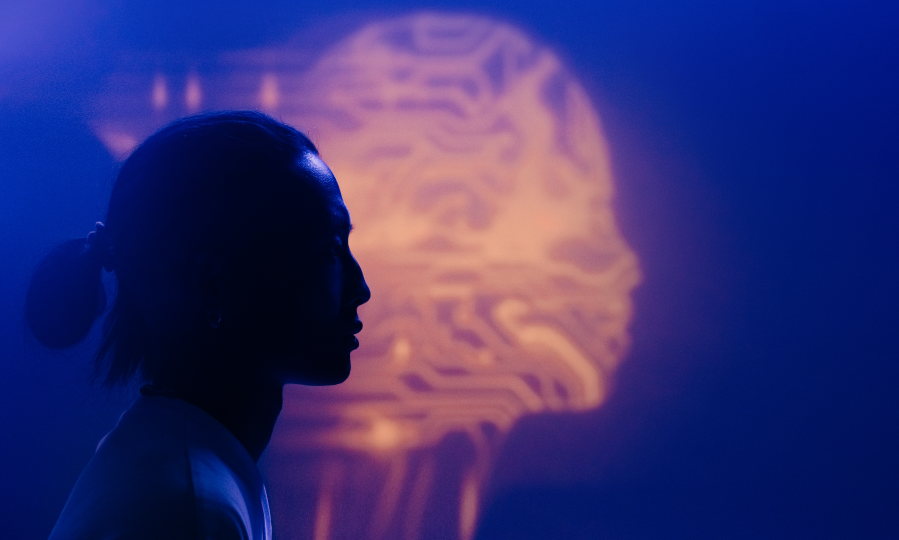HR TRENDS
HR, AI and CSR: the need for close collaboration

SHARE THE ARTICLE ON

CSR, HR and AI: three concepts with a close, complex relationship. Corporate Social Responsibility (CSR) is clearly intertwined with Human Resources (HR). The men and women working for a company are the ones who will embody – and benefit from - corporate responsibility. HR must, however, deal with the consequences of digitization and the emergence of Artificial Intelligence (AI) in terms of CSR, while using these technologies to improve a company's social, economic and environmental impact. These different relationships are thus a key factor in the transformation of HR and the tools used.
HR plays a key role in and promotes CSR
CSR encompasses a wide variety of topics. It essentially has three components: social, environmental and economic. HR is affected by all three of these issues and is torn between customer and employee expectations on the one hand and European and national regulations on the other, both which essentially pull it in the same direction.
Social responsibility is the component in which HR is most clearly involved in with respect to CSR. It is because of this close involvement that HR departments often monitor the social aspects of CSR. Social issues include working conditions, remuneration policy, inclusion, diversity, non-discrimination, maintaining employability. All of these are an integral part of HR’s objectives.
Environmental responsibility affects production to a greater extent: the aim is to ensure that the product or service is produced in a way that respects the environment and human rights. HR is also involved here, because it manages mobility and incentives put in place by the company to steer employee behavior in the right direction. This is accomplished through training courses, raising employee awareness of environmental issues and the best practices to follow - but also through the department's purchasing policy and by controlling the impact of the digital tools used.
The third component of CSR focuses on financial factors. This is economic responsibility, which is now often replaced by corporate governance. It refers not only to responsibility to the economic situation, but also compliance with regulations, fair practices and ensuring the transparency of those in charge. HR is once again involved in this area, not only through the protection of HR data and compliance with labor laws, but also because it takes part in corporate governance and produces indicators for CSR reporting.
HR is therefore a major player in CSR, and this is reflected in the tools it uses, from administrative management and payroll software to recruitment, career management and training management solutions, i.e. the HRIS.
Digital technology and AI: allies of HR
Digital HR solutions are evolving at high speed and are increasingly incorporating various types of artificial intelligence. The applications are numerous and are transforming the way HR departments work in the field.
How do digital technology and AI support HR departments’ CSR objectives? Applications used include:
- Accessibility of digital tools: the RGAA and European regulations are encouraging software companies to make their software interfaces accessible to all, regardless of disability. This means making text and images readable for the visually impaired, adapting visuals for people who can't distinguish colors, generating automatic subtitles for the hearing impaired, etc. For most of these issues, AI's content analysis and generative capabilities can be invaluable. The HRIS, recruitment sites and training catalogs are directly affected by these innovations and requirements.
- Equality in the workplace: AI can analyze HR data and generate indicators to manage equity and inclusion policies. With the right algorithm, it can also minimize the risk of discrimination during the sourcing, pre-selection and selection phases.
- Implementing CSR HR policies: HR solutions can incorporate virtuous schemes such as mobility packages, cost-sharing for soft mobility, donating days off, as well as green entrepreneurship, skill share programs and employee social commitment. These digital applications can be boosted with AI features such as conversational agents that take into account suggestions from employees or answer their questions about CSR policy.
- Training: developing employees' skills to enhance their employability is part of the CSR criteria, and AI should be presented as a tool to help a company’s employees... In addition, initiatives to raise awareness about environmental issues (such as the Climate Fresk), would be a good example of a company's CSR policy.
- Reporting: digital technology and AI are useful for HR monitoring and producing indicators required by the CSRD directive - such as indicators on the workforce, work/life balance, pay gaps, etc.
The CSR cost of AI
It is also important to look at the liabilities of digital technology and AI in terms of social responsibility. The most obvious are data confidentiality and security issues, but there is also a risk that boundaries between the home and workplace may become blurred - particularly with the hybrid (on-site/remote) working arrangements made possible by digital technology. Here, the solution lies in HR policy, and technology can be a significant help in this area. Solutions and processes need to be implemented that ensure the privacy of employee data and employees’ right to disconnect from work.
Another area of concern is the carbon footprint of digital technology, and even more so that of AI. Today, a query submitted to an AI engine emits ten times more carbon than a query using a conventional search engine. We need to be aware of this and integrate AI into solutions in a reasonable way. Intensive use of artificial intelligence should not be allowed to wipe out all the digital sobriety efforts made by companies. Practical use of AI with effective searches (that work only after several characters have been entered) and raising awareness in using tools responsibly will help achieve this goal.
In this respect, SopraHR has launched an ambitious "net zero carbon" objective for 2040 and set up a work group on responsible AI. This is an essential issue. AI must be used wisely.
HR departments are the driving force behind a company's CSR policy. They often discuss these issues with social partners, managers and employees. They set up agreements, suggest HR innovations and implement initiatives to raise awareness. The role of a company like SopraHR is to provide HR with the tools it needs to deploy this policy with optimized impact, while minimizing any negative effects. This is the challenge of the complex relationship that HR, CSR and AI have and will continue to have in the decades to come. When it comes to sustainable development, we all have a role to play. And HR software companies need to play their part as well.




